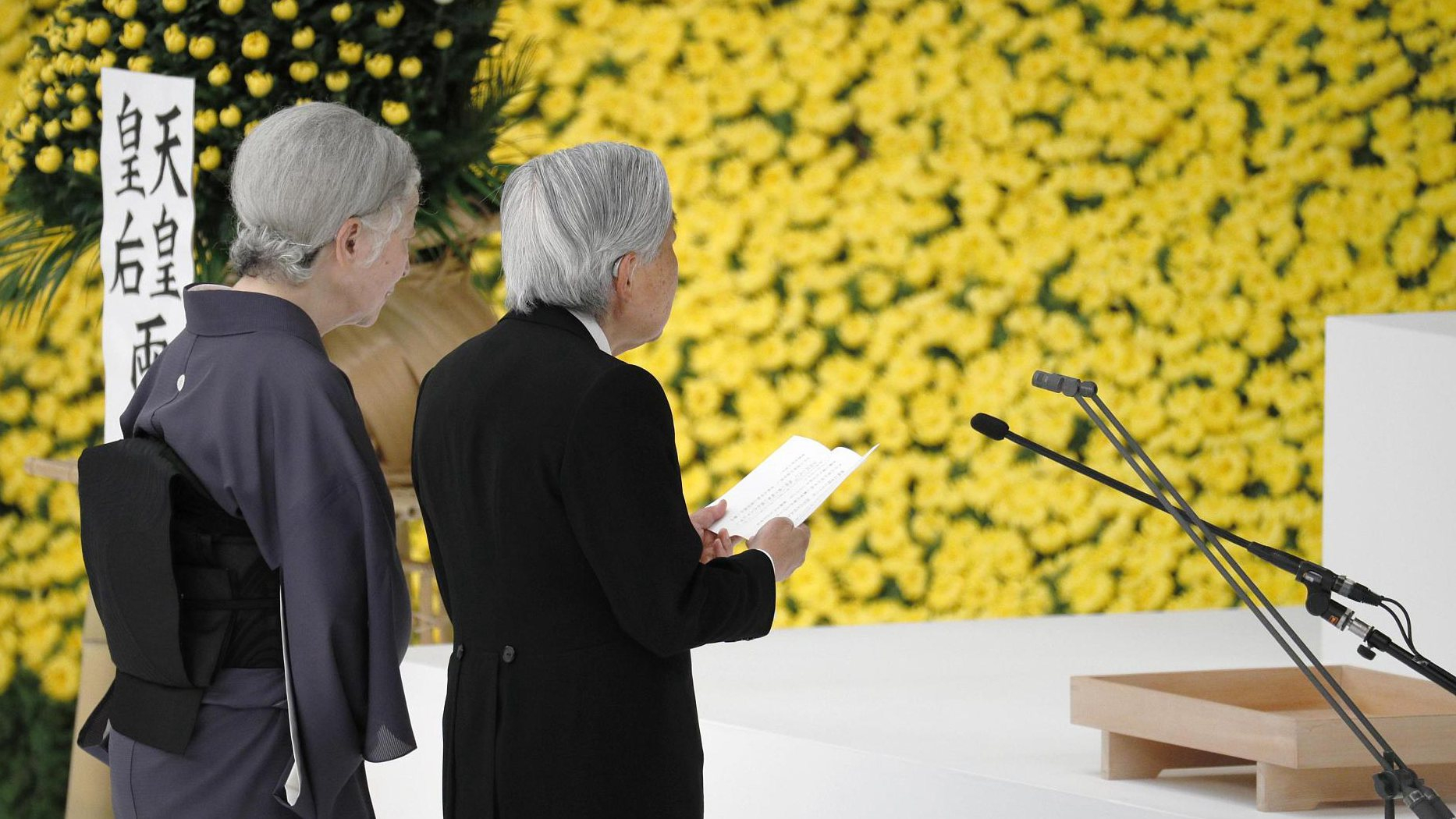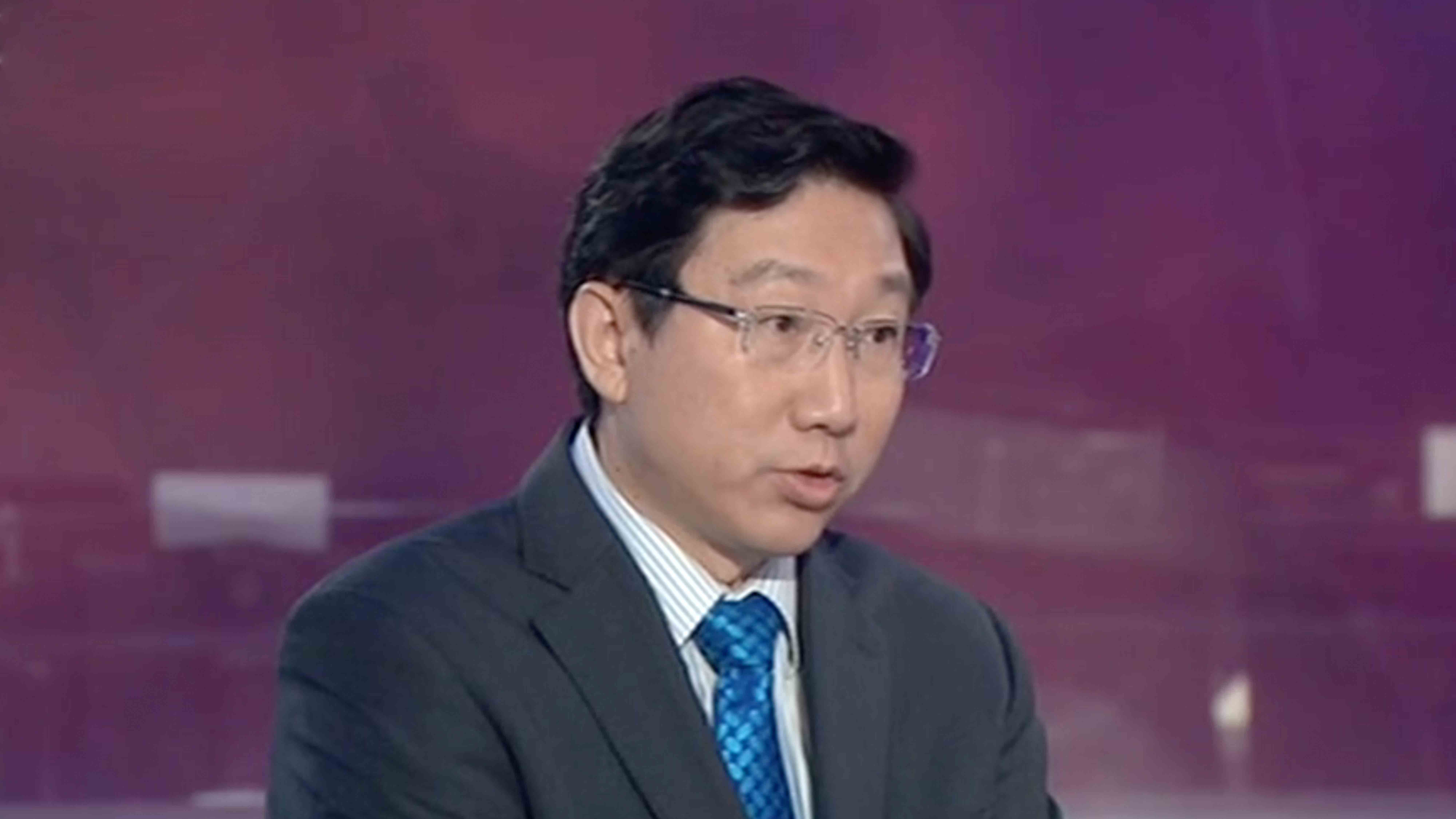
Opinions
21:49, 15-Aug-2018
Opinion: What can we learn from Japan's surrender, 73 years later?
Updated
20:53, 18-Aug-2018

Editor's note: The article is based on an interview with Dr Cheng Xiaohe of the School of International Studies at Renmin University of China. The article reflects the author's opinion, and not necessarily the views of CGTN.
On the occasion of the 73rd anniversary of Japan's surrender in World War II, Japan’s Emperor Akihito made a speech reiterating his "deep remorse" over the country's wartime acts at a ceremony to mourn the war dead. The second Sino-Japanese war was launched by Akihito's father, Emperor Hirohito. From Hirohito to Akihito, Japan's emperors' attitude to the war has changed, as has the role it plays in Japanese society.
Dr Cheng Xiaohe, an associate professor at the School of International Studies at Renmin University of China, pointed out that from a historical perspective the role of the Japanese emperor has alternated from an executive ruler to a ceremonial and symbolic one.
"Before and during the World War II, the emperor played an important role, even not the most important. But after the end of the war, the Japanese emperor has played a ceremonial function," said Cheng.
In Japan, the emperor is neither the chief executive nor the chief-in-command. Both of these two functions are for the Prime Minister.
02:29

The emperor performs a number of ceremonial functions with advice and approves of the Diet (Japanese Parliament) and the cabinet.
The 73rd anniversary of Japan's surrender is an occasion for both China and Japan to look back at this history and to consider what can be learned from it.
In 2017, China's Ministry of Education ordered a nationwide revision of the content related to the war against Japanese aggression in textbooks in primary and secondary education. The period of war was lengthened, from 1931 to 1945. All the departments were advised to check their teaching materials and replace the term “8-year war of resistance” with “14-year war of resistance.”
Cheng applauded this textbook change by describing it as an attempt to get the history right and correct misperceptions.
Cheng gave historical justifications. "Japan's military used an incident in 1931 as an excuse to invade and occupy the whole of Manchuria, northeast China, which is, of course, part of China."
Manchukuo state was illegally established by Japan. So once Japan had invaded the northeast of China, Japan's act could be perceived as an aggression. Cheng concluded that Japan had already begun to invade China before the Marco Polo Bridge Incident (Lugou Bridge Incident) in 1937, during which it broke down the gate to Beijing.
In this case, China had to do something to get the history right. It can also help China and Japan to develop a sustainable and sound bilateral relationship.

SITEMAP
Copyright © 2018 CGTN. Beijing ICP prepared NO.16065310-3
Copyright © 2018 CGTN. Beijing ICP prepared NO.16065310-3